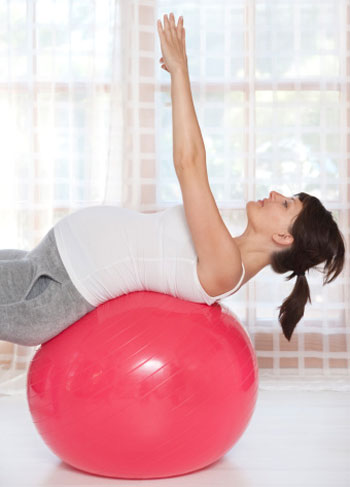-


-

- CARE DURING PREGNANCYLIFESTYLE ADVISORY
-
Pregnancy is recognized as a perfect time to establish sensible exercise and dietary habits. It is currently recognized that habits adopted during pregnancy could affect a woman's health for the rest of her life.

BENEFITS
- Exercise maintains good fitness level
- There is reduction of complaints of fatigue, varicosities and swelling of the extremities (legs)
- Less stress, depression and insomnia
- Exercise may reduce the length of labour and decrease delivery complications
- Exercise helps to control excess weight
- Exercise helps to reduce back pain
CAUTION
The physician should be consulted and women should be screened for any contraindications to exercise. Women should avoid overly vigorous activity, especially in the third trimester, when most pregnant women have a decreased tolerance for weight-bearing exercise. Because of the physiologic changes associated with pregnancy, as well as the hemodynamic response to exercise, some precautions should be observed. Hyperthermia and exercising at high altitudes should be avoided.
-
EXERCISE RECOMMENDATION
Type of exercise: Walking and swimming are recommended. Strength training should not be the main form of exercise. Kegel exercises are recommended to strengthen the pelvic floor musculature. Back strengthening exercises such as cat and camel pose help to reduce back pain
Frequency: 3 to 4 times a week
Intensity: Low to moderate intensity (60 to 70 % of MHR). Intensity can also be measured by using ‘talk test’. The woman exercises at a comfortable intensity where a normal conversation can be maintained.
Duration: 15 to 30 minutes

TIPS
- Ensure adequate hydration, extra caloric intake and appropriate ventilation
- Do low impact exercises. Low impact exercises such as swimming or cycling or walking are safe; high impact exercises such as skipping and jumping should be avoided
- Exercise without over-straining. Stop exercising when fatigued and do not exercise to exhaustion
- Avoid exercise while lying on your back. Such a position is associated with decreased cardiac output in pregnant women
- Abdominal exercises may be performed e.g. half crunch on an incline bench with a cross towel across the abdomen for support. But any kind of exercise involving the potential of even mild abdominal trauma should be avoided
- Be careful while stretching. Avoid overstretching – as women are more flexible during this period (due to the release of certain hormones, e.g. relaxin)
- Consume between 30 and 50 grams of carbohydrate before exercise